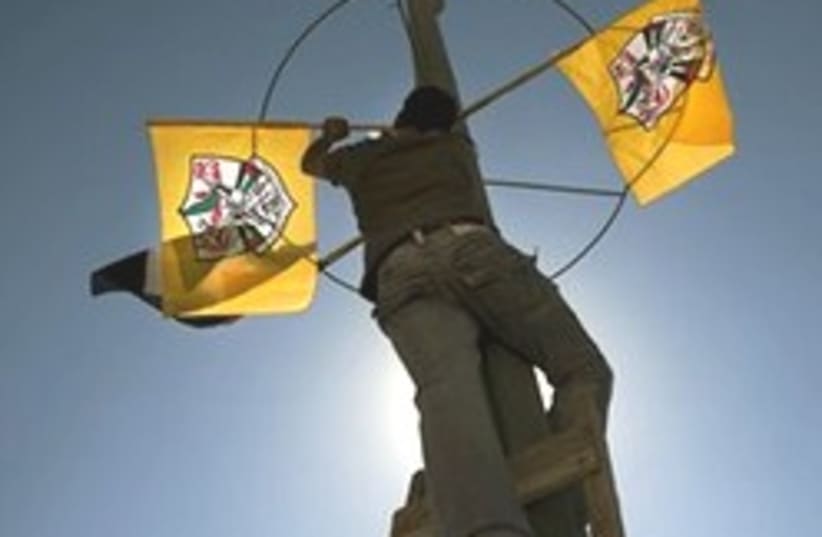Fatah is scheduled to launch its sixth General Assembly in Bethlehem on Tuesday, amid growing skepticism that the faction will succeed in implementing major reforms or endorsing a more moderate attitude toward the conflict with Israel.
The conference, which is supposed to bring together more than 2,000 delegates, is the first since 1989.
The decision to hold the conference in Bethlehem came after many Arab countries, including Syria, Egypt, Jordan and Lebanon, turned down requests by the Fatah leadership to host the gathering.
The delegates are expected to vote for two of Fatah's main bodies, the Central Committee and the Revolutionary Council. The first institution consists of 21 members, while the second has 120 seats. Delegates will also discuss Fatah's strategy, especially concerning the conflict with Israel.
According to a draft of the proposed political program that was leaked to the Palestinian media on Monday, the Fatah leadership plans to replace the term "armed struggle" with "resistance."
The new program would state that while Fatah supports the peace process with Israel, it maintains the right to continue the "resistance" to achieve the goals of the Palestinians.
"Negotiations with Israel were not part of Fatah's culture," said Jamal Nazzal, a Fatah spokesman in the West Bank.
He declared that Fatah had never recognized Israel's right to exist and denied that his faction had asked Hamas or any other Palestinian party to do so.
Nazzal's remarks are the latest in a series of hard-line statements issued by top Fatah operatives ahead of the conference, in an apparent effort to win votes in elections for the Central Committee and the Revolutionary Council.
In a series of interviews, scores of Fatah members who have converged on Bethlehem from around the world said they vehemently opposed any attempt to soften their faction's stance toward Israel.
Almost all said they opposed recognizing Israel as a Jewish state or relinquishing the "right of return" for Palestinian refugees to their original homes inside Israel.
The conference is also scheduled to discuss Fatah's relations with Hamas. Many Fatah representatives announced that they would demand "major changes" in their faction following its defeat by Hamas in the January 2006 parliamentary election. They added that they would also seek clarifications regarding Fatah's expulsion by Hamas from the Gaza Strip in June 2007.
The conference is being held in the absence of some 400 Fatah delegates who were banned by Hamas from leaving the Gaza Strip.
Hamas said it would not permit the Fatah members to travel to the West Bank unless the Fatah-dominated Palestinian Authority security forces released more than 900 "political detainees" who are being held without trial for alleged links to the Islamist movement.
Fatah officials strongly condemned the Hamas measure and threatened to take retaliatory steps against its leaders and members in the West Bank.
| More about: | Palestinian National Authority, Gaza Strip, Bethlehem, Lebanon |
